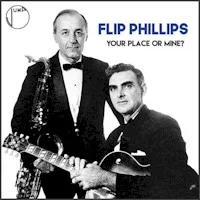Time: 50:31
Size: 115.7 MB
Styles: Piano jazz
Year: 2013
Art: Front
[2:52] 1. Night Shift
[2:15] 2. Exactly Like You
[2:39] 3. Gee, It's Good To Hold You
[2:11] 4. If You Never Return
[3:27] 5. In There
[4:39] 6. Jodi
[4:50] 7. One For A Nickel
[4:36] 8. One O'clock Boogie
[3:58] 9. Since I Fell For You
[3:31] 10. St. Louis Blues
[2:51] 11. The Otherside Of The Rainbow
[4:32] 12. Traffic Jam
[2:26] 13. Waitin' For The Train To Come In
[5:37] 14. Walk 'em
Buddy began taking piano lessons at age four. Although he specialized professionally in tasty R&B, classical music remained one of his passions. In 1939, Buddy Johnson waxed his first 78 for Decca, "Stop Pretending (So Hep You See)." Shortly thereafter, Ella joined her older brother; her delicious vocal on "Please Mr. Johnson" translated into long-term employment. Buddy had assembled a nine-piece orchestra by 1941 and visited the R&B charts often for Decca during wartime with "Let's Beat Out Some Love," "Baby Don't You Cry," the chart-topping "When My Man Comes Home," and "That's the Stuff You Gotta Watch." Ella cut her beloved rendering of "Since I Fell for You" in 1945, a year after Buddy waxed his jiving gem "Fine Brown Frame." In addition to their frequent jaunts on the R&B hit parade, the Johnson organization barnstormed the country to sellout crowds throughout the '40s. Buddy moved over to Mercury Records in 1953 and scored more smashes with Ella's "Hittin' on Me" and "I'm Just Your Fool," the latter a 1954 standout that was later purloined by Chicago harpist Little Walter.
Rock & roll eventually halted Buddy Johnson's momentum, but his band (tenor saxophonist Purvis Henson was a constant presence in the reed section) kept recording for Mercury through 1958, switched to Roulette the next year, and bowed out with a solitary session for Hy Weiss' Old Town label in 1964. Singer Lenny Welch ensured the immortality of "Since I Fell for You" when his velvety rendition of the Johnson-penned ballad reached the uppermost reaches of the pop charts in 1963. It was a perfect match of song and singer; Welch's smooth, assured delivery would have fit in snugly with the Johnson band during its heyday a couple of decades earlier. ~ Bill Dahl
Rock & roll eventually halted Buddy Johnson's momentum, but his band (tenor saxophonist Purvis Henson was a constant presence in the reed section) kept recording for Mercury through 1958, switched to Roulette the next year, and bowed out with a solitary session for Hy Weiss' Old Town label in 1964. Singer Lenny Welch ensured the immortality of "Since I Fell for You" when his velvety rendition of the Johnson-penned ballad reached the uppermost reaches of the pop charts in 1963. It was a perfect match of song and singer; Welch's smooth, assured delivery would have fit in snugly with the Johnson band during its heyday a couple of decades earlier. ~ Bill Dahl
Night Shift mc
Night Shift zippy











